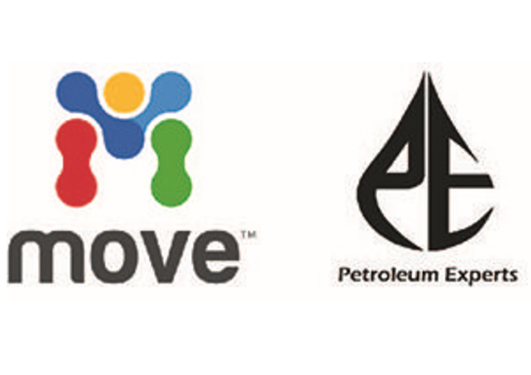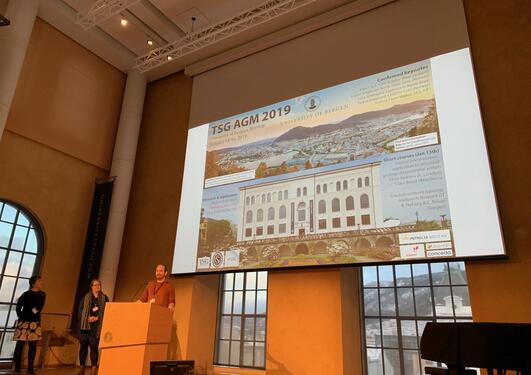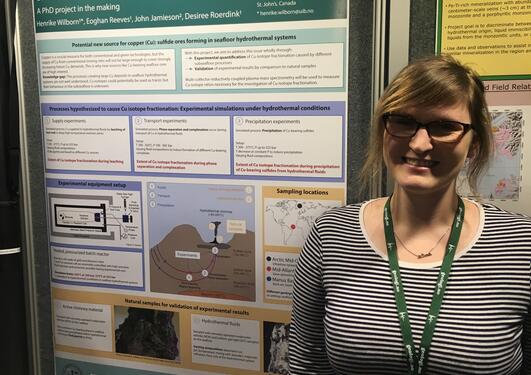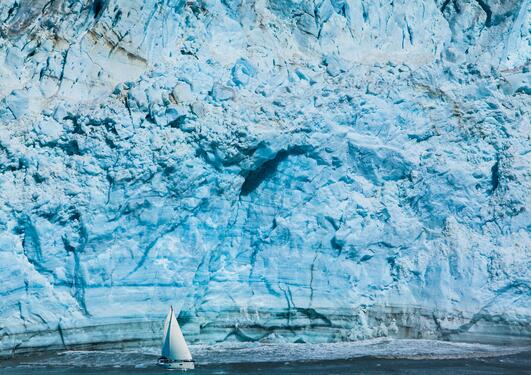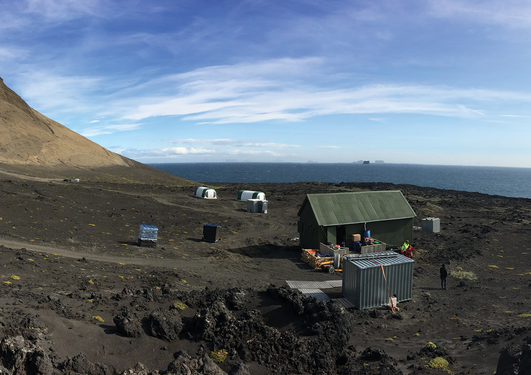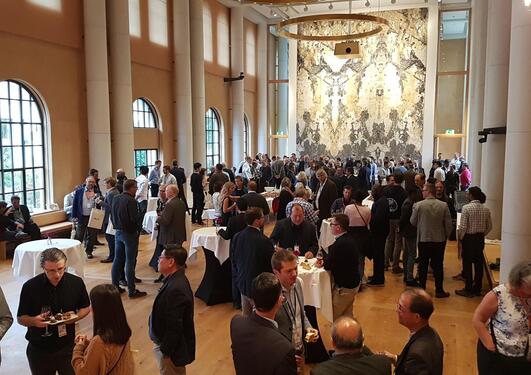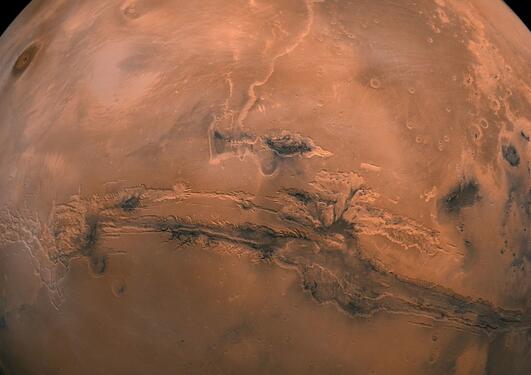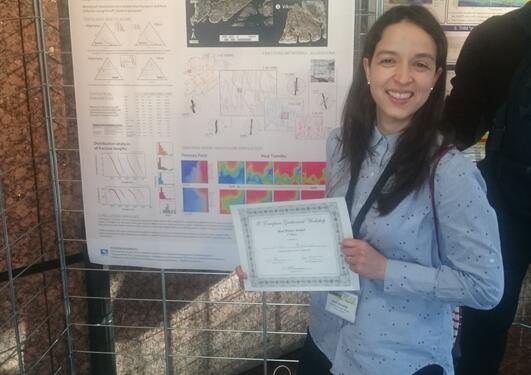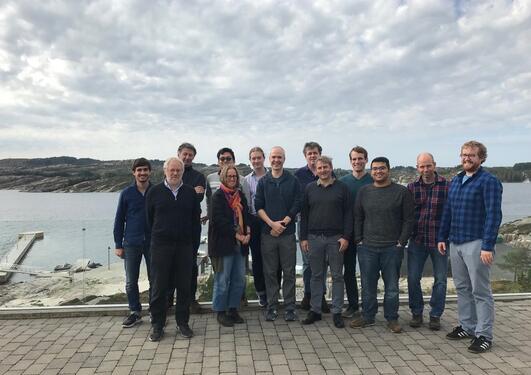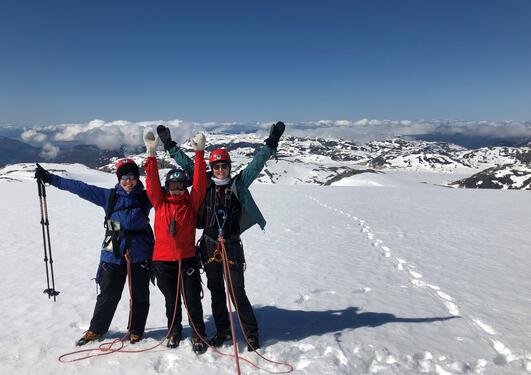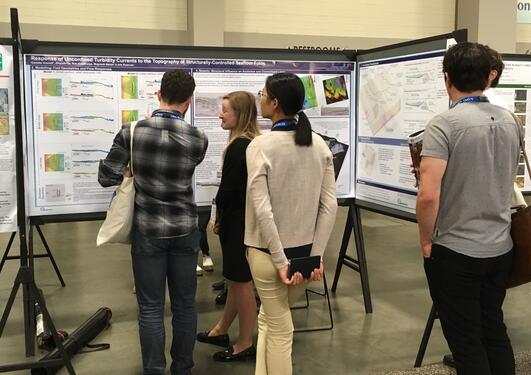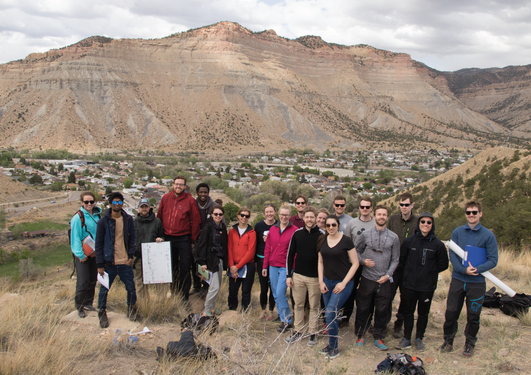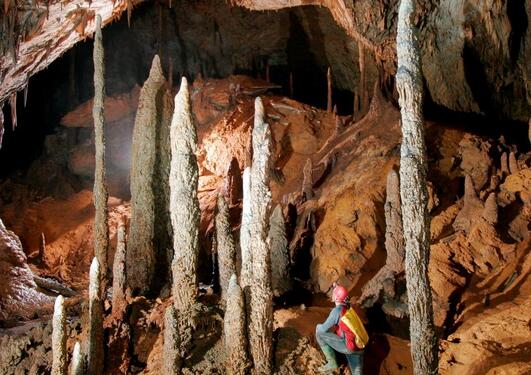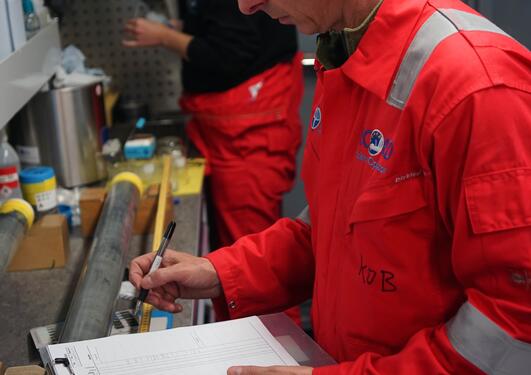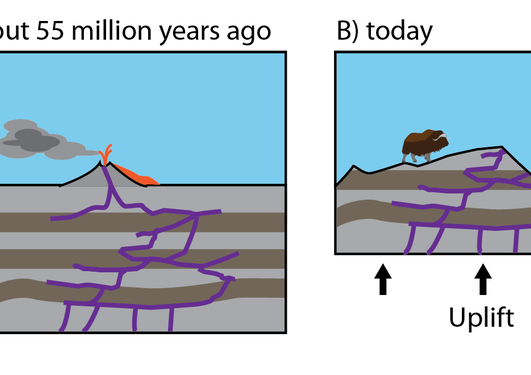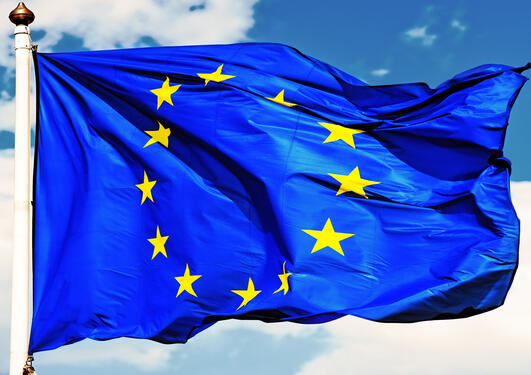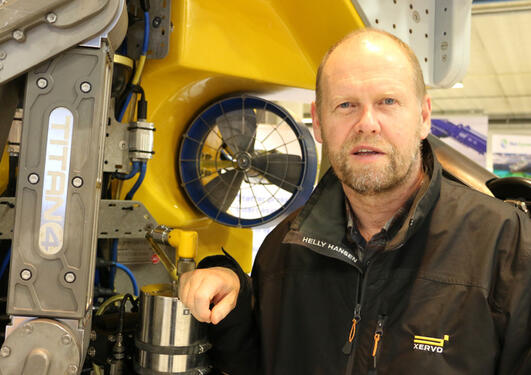News archive for Department of Earth Science
Minerals and Metals for Green Technologies was the main theme for the NGF winter conference 2019, January 7th - 9th. Many of our PhD and master students presented their work during the conference and it was of great success.
Young researcher Basile de Fleurian embarks on a project that seeks to understand more on how glaciers slide. In turn, this knowledge will provide a better prediction of sea level rise.
From journeys into mines to explorations of volcanoes on the ocean floor, deep voyages reveal the richness of the planet’s deep biosphere.
The 47th Under Water Mining conference (UMC18) was hosted in Bergen, Grieghallen, from 11th to 14th of September. The conference was organized in collaboration with the K.G. Jebsen Centre for Deep Sea Research (UiB), Global Centres of Expertise Subsea (GCE Subsea) and the Norwegian Petroleum Directorate (NPD). We are pleased to announce that the conference was of great success.
Leif-Erik Rydland Pedersen i spennende og aktuelt intervju med NRK.
Over the course of three days (9-11 May), seven BCCR and Ice2Ice researchers participated in a glacier safety course on the Folgefonna glacier.
GEO had a strong showing at the American Association of Petroleum Geologists (AAPG) Annual Convention and Exhibition held in Salt Lake City, 20-23 May.
On Saturday, March 17, Stein-Erik Lauritzen and Nele Meckler will be leaving for fieldwork in Borneo, Malaysia
During the last month 12 postdocs, researchers and associate professors of the Department of Earth Science have registered as «experts» to evaluate EU project proposals. This is the result of a longterm strategy to increase the number and the quality of project proposals submitted to the European Commission’s frame programs. Thus, evaluating proposal is the best training course a researcher will... Read more
Ægir is the only usable resource in search for airplane and shipwreck in deep water
Pages
- February 2025 (2)
- January 2025 (1)
- December 2024 (1)
- November 2024 (1)
- October 2024 (2)
- September 2024 (4)
- August 2024 (3)
- July 2024 (3)
- June 2024 (2)
- April 2024 (3)
- March 2024 (1)
- February 2024 (2)
- December 2023 (2)
- November 2023 (4)
- October 2023 (2)
- September 2023 (1)
- August 2023 (3)
- July 2023 (4)
- June 2023 (1)
- April 2023 (4)
- March 2023 (2)
- February 2023 (1)
- January 2023 (2)
- December 2022 (1)
- November 2022 (8)
- October 2022 (1)
- August 2022 (2)
- June 2022 (6)
- May 2022 (1)
- April 2022 (1)
- March 2022 (3)
- February 2022 (2)
- December 2021 (2)
- November 2021 (2)
- October 2021 (1)
- September 2021 (2)
- July 2021 (1)
- June 2021 (9)
- May 2021 (1)
- February 2021 (1)
- September 2020 (2)
- June 2020 (2)
- May 2020 (1)
- April 2020 (2)
- November 2019 (1)
- October 2019 (1)
- April 2019 (1)
- February 2019 (4)
- January 2019 (2)
- December 2018 (1)
- October 2018 (6)
- June 2018 (3)
- March 2018 (1)
- February 2018 (1)
- January 2018 (2)
- December 2017 (2)
- November 2017 (4)
- October 2017 (3)
- September 2017 (1)
- July 2017 (1)
- May 2017 (1)
- March 2017 (1)
- February 2017 (1)
- January 2017 (2)
- December 2016 (1)
- November 2016 (1)
- October 2016 (2)
- September 2016 (2)
- August 2016 (1)
- June 2016 (3)
- May 2016 (3)
- April 2016 (1)
- March 2016 (1)
- January 2016 (1)
- November 2015 (2)
- October 2015 (3)
- June 2015 (2)
- May 2015 (1)
- March 2015 (1)
- February 2015 (1)
- November 2014 (1)
- October 2014 (4)
- May 2014 (2)
- March 2014 (1)
- January 2014 (1)
- December 2013 (4)
- November 2013 (1)
- October 2013 (5)
- August 2013 (1)
- June 2013 (1)
- May 2013 (2)
- April 2013 (2)
- February 2013 (1)
- January 2013 (3)
- December 2012 (1)
- October 2012 (1)
- September 2012 (1)
- August 2012 (1)
- March 2012 (1)
- January 2012 (1)
- December 2011 (2)
- November 2011 (5)
- October 2011 (4)
- September 2011 (6)
- July 2011 (3)
- June 2011 (6)
- May 2011 (4)
- April 2011 (2)
- March 2011 (5)
- February 2011 (2)
- January 2011 (1)
- December 2010 (2)
- November 2010 (3)
- October 2010 (2)
- September 2010 (1)
- June 2010 (4)
- May 2010 (2)
- April 2010 (3)
- March 2010 (3)
- February 2010 (3)
- January 2010 (3)
- September 2009 (1)
- August 2009 (2)
- July 2009 (1)
- June 2009 (4)
- March 2009 (2)
- February 2009 (1)
- January 2009 (1)
